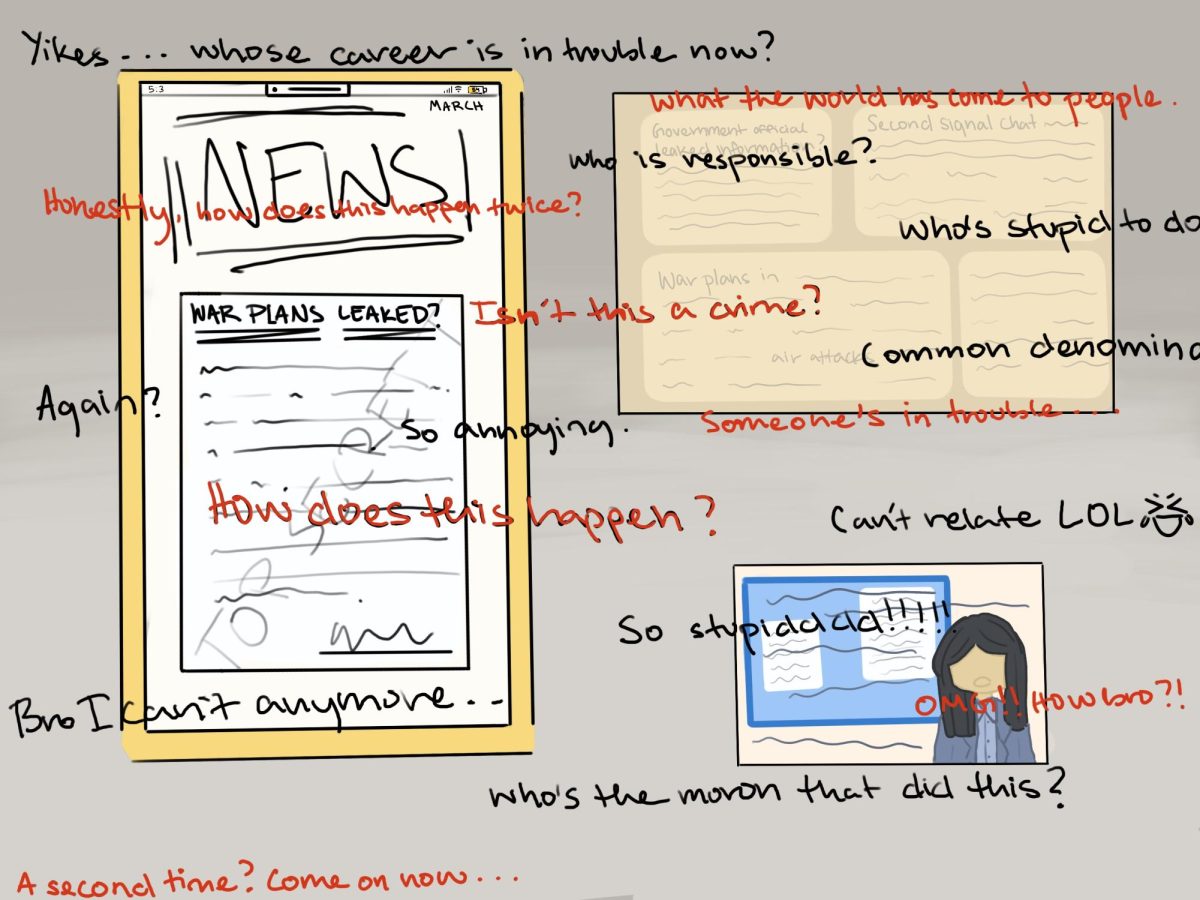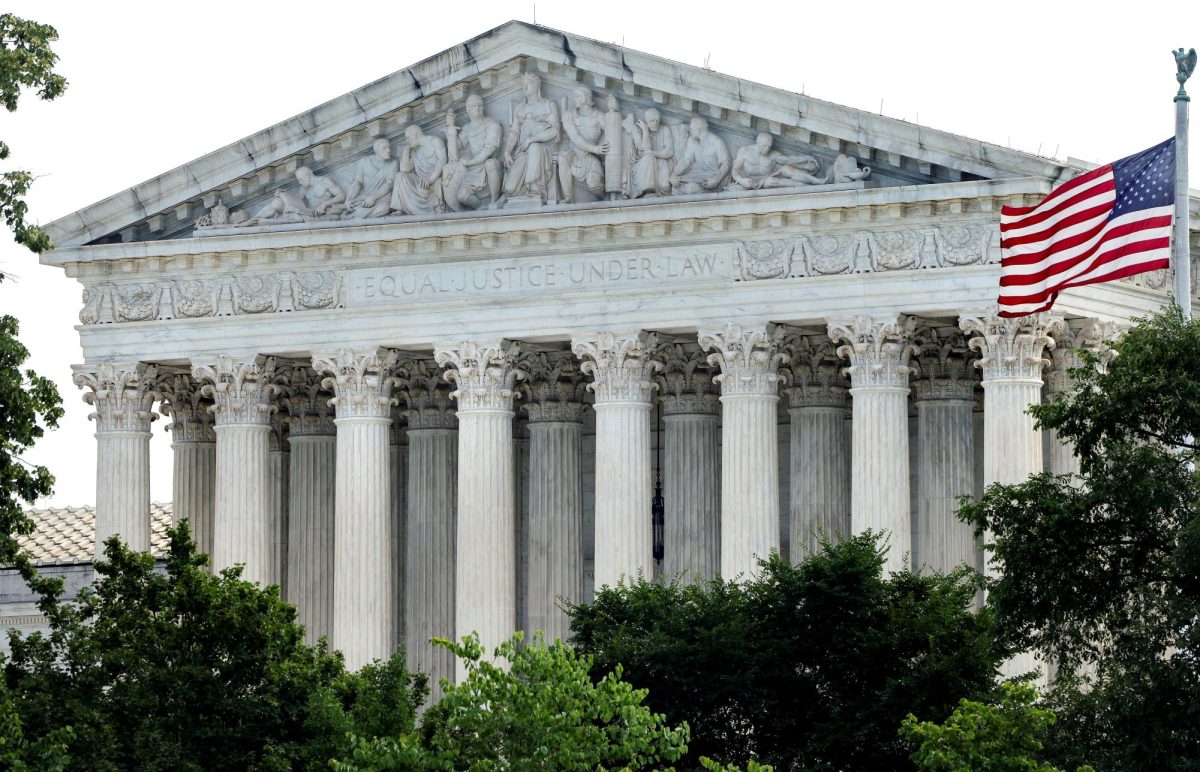The consequences of leaking information, especially information that is crucial to the government and classified to the public, can be as severe as going to prison for 10 years, according to the law. But does this still go for someone of a high position in the government?
Secretary of Defense Pete Hegseth was responsible for leaking highly classified information on March 15. That day, the U.S. carried through with bomb attacks across Yemen against Houthi rebels. For some context, the Houthi are “an armed political and religious group which champions Yemen’s Shia Muslim minority, the Zaidis” and are self-proclaimed to be a part of the Iranian-led “axis of resistance” against Israel, according to BBC News. The U.S. became involved when the group hijacked a commercial ship in the Red Sea in Nov. 2023 that was used for global trading.
At the time, President Joe Biden said the attacks “jeopardize trade and threatened freedom of navigation.” In response, the U.S. alongside the United Kingdom started to retaliate in Jan. of 2024 by carrying out airstrikes against Houthi targets in Yemen. However, in March of 2025, President Donald Trump authorized a wave of airstrikes against Houthi targets.
This leads us to the first of two incidents regarding classified information being leaked by Hegseth. On March 15, 2025, the defense secretary leaked plans of bombings happening against Houthi rebels in Yemen that very day. According to Jeffrey Goldberg, the editor in chief for The Atlantic, he was added to the group chat where Hegseth leaked the war plans.
“I, however, knew two hours before the first bombs exploded that the attack might be coming. The reason I knew this is that Pete Hegseth, the secretary of defense, had texted me the war plan at 11:44 a.m. The plan included precise information about weapons packages, targets, and timing,” wrote Goldberg in his article, “The Trump Administration Accidentally Texted Me Its War Plans.”
Goldberg explained that he received a connection request from a user with the name “Michael Waltz,” who is seemingly National Security Advisor Mike Waltz and was added to the group chat named “Houthi PC small group.”
The chat was created on Signal, a messaging app that provides more privacy and security through end-to-end encryption. Along with Goldberg and Waltz, people under the names “Pete Hegseth,” “JD Vance,” “MAR,” and others were also added to the group chat.
In total there were 18 people that were added to the group chat, all of whom seemed to hold a government position.
As said by Goldberg, at 11:44 a.m., Hegseth texted the group chat details about the operation in Yemen. In the original article, Goldberg was unable to quote the defense secretary directly due to “The information contained in them, if they had been read by an adversary of the United States, could conceivably have been used to harm American military and intelligence personnel, particularly in the broader Middle East, Central Command’s area of responsibility” he said.
Though it was questioned by Goldberg whether or not the group chat was legitimate, it was soon confirmed when the news of the bombings in Yemen began spreading throughout the world. It was also confirmed when Goldberg received a response to the email he sent to those in the chat, primarily Waltz, Hegseth, John Ratcliffe (Director of CIA) and Tulsi Gabbard (Director of National Intelligence.)
The reply was from Brian Hughes, the National Security Council’s spokesman who confirmed that the chain of messages were real and that they were “reviewing how an inadvertent number was added to the chain,” wrote Hughes, quoted by Goldberg.
However, Waltz took responsibility for the incident. According to Deadline, Fox New’s Laura Ingraham interviewed the National Security Advisor, where he replied that “‘A staffer wasn’t responsible, and I take full responsibility,” Waltz said. “I built the group. My job is to make sure everything is coordinated.’”
This had taken the spotlight off of Hegseth then, with the public eye looking at Waltz. However, in April, it was disclosed that Hegseth spread information about the targeted Houthi attacks in Yemen, which was basically the same information he accidentally told Goldberg.
Unlike the first incident where the chat was made by Waltz, Hegseth made this chat himself, including his wife, brother and about a dozen more people from his personal and professional inner circle, reported The New York Times.
It happened the same time the first did, on March 15. The chat was named “Defense | Team Huddle” and Hegseth apparently shared information about flight schedules that were connected to the airstrikes in Yemen. He has since then threatened legal action against staffers who leaked the information about the second Signal chat, according to Politico.
While dealing with the chat leak and firing many people in his inner circle, including Dan Caldwell, Darin Selnick and Colin Carroll, all of whom were top advisors to Hegseth, he also faced harsh backlash from the public. Users on popular social media sites like Reddit have stated “I can’t with this dude. What a moron,” and “Big dog how does this happen twice?”
How does this happen twice? What can we expect in the future? If classified information is being shared with others, and eventually leading to the public knowing of it too, will this ultimately lead to the demise of the American government? Only time will tell as updates are constant about the two Signal chats and the government’s decision regarding them.










